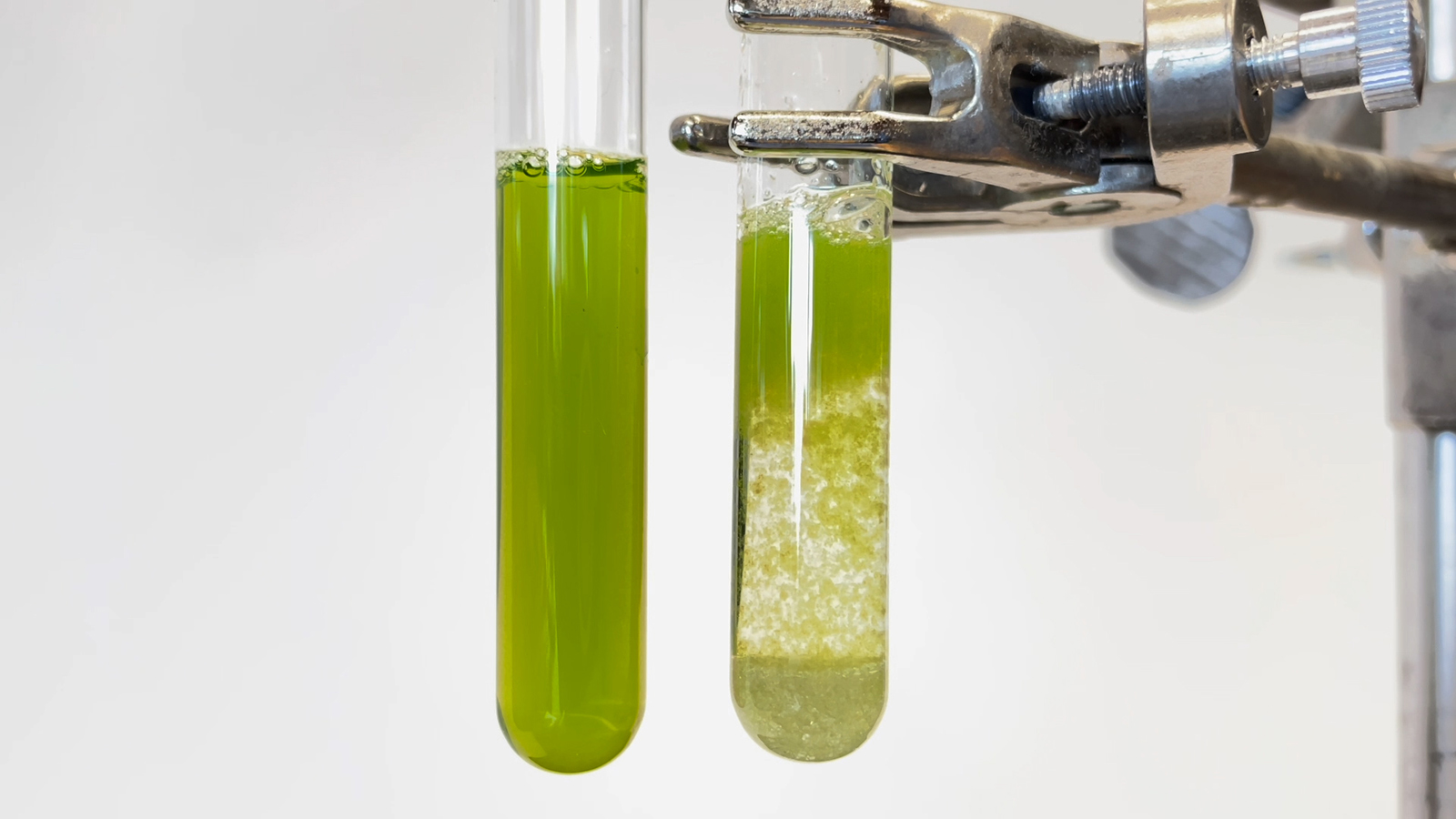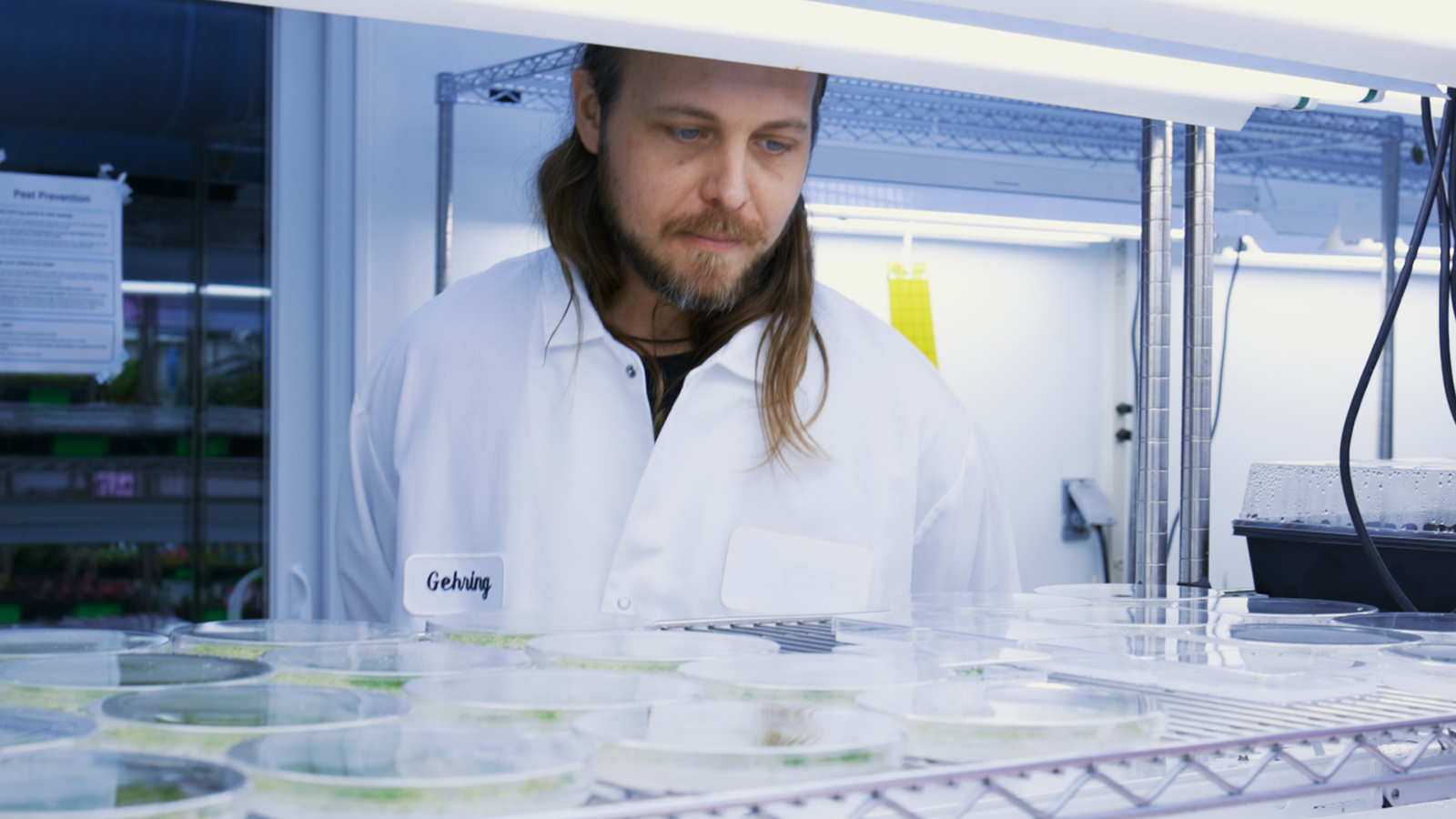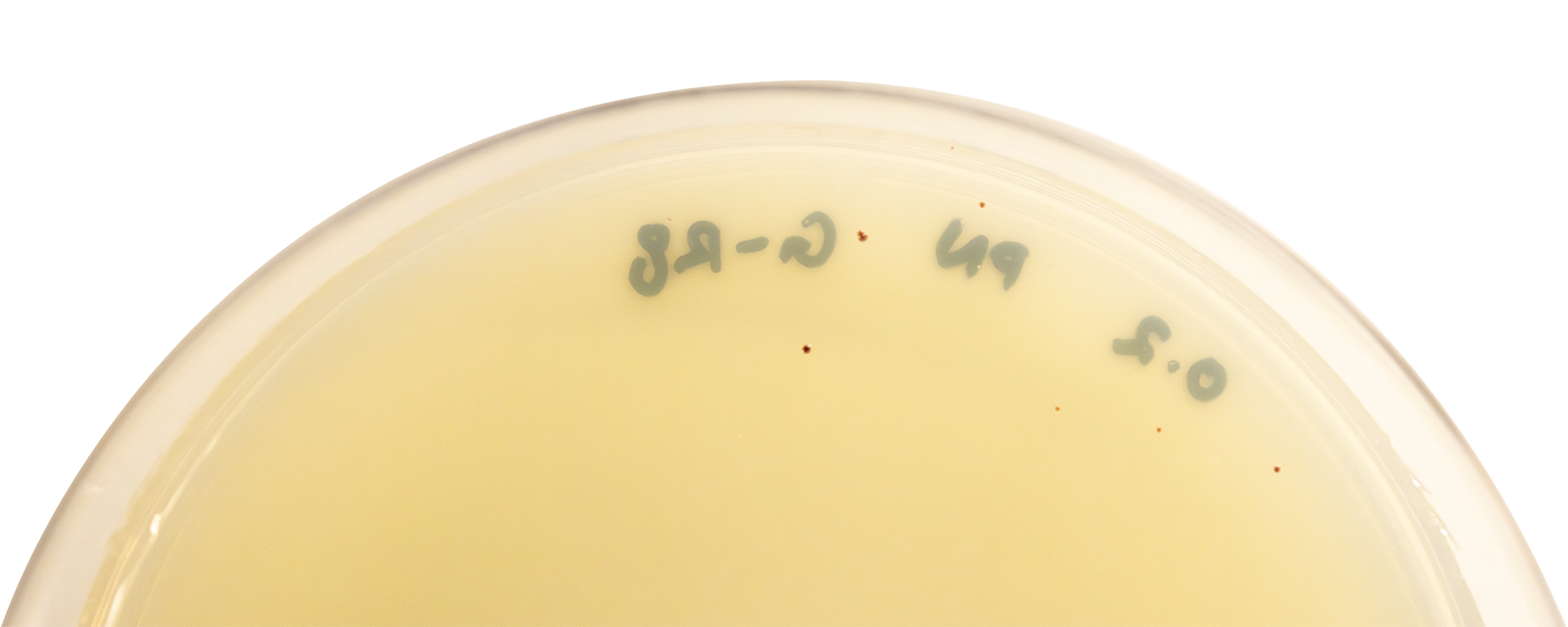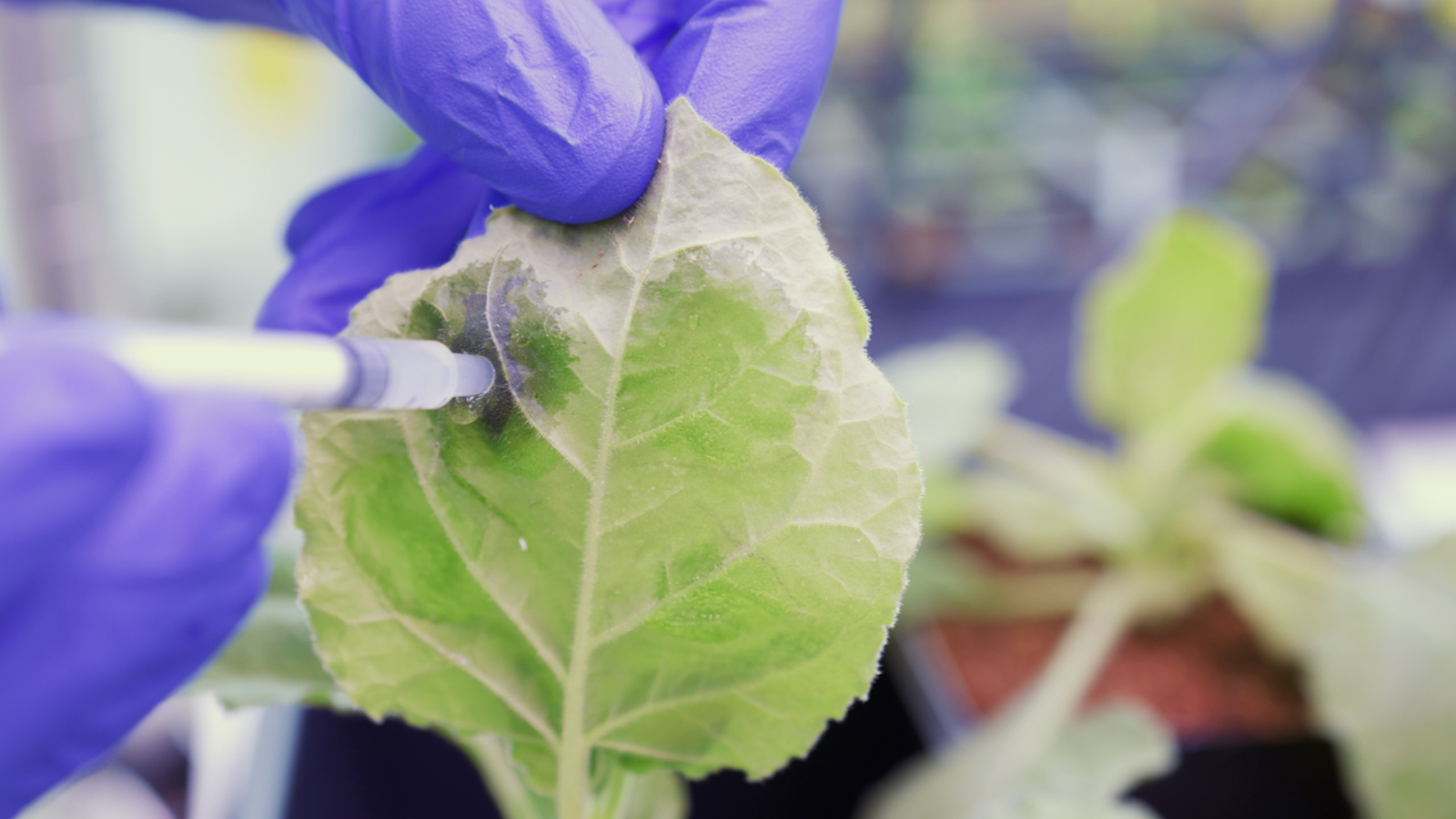This enzyme is responsible for life on Earth. It’s a hot mess.
And it’s getting worse with extreme heat.
Pretty much all life on Earth – plants, animals, humans – in large part, owe their entire existence to one microscopic protein. It’s called ribulose bisphosphate carboxylase/oxygenase, better known as RuBisCO, and it’s an enzyme: a biological machine that helps turn CO2 into energy.
Of the millions of enzymes on earth, RuBisCO might be the most important. It’s essential to photosynthesis, and without it, plants would be unable to grow. Without RuBisCO, nearly all life on Earth would starve.
But even though it’s everywhere, and has been around for billions of years, RuBisCO kind of sucks at its job. And it’s getting worse as the world gets hotter.
Today, a global team of scientists is trying to accomplish something that evolution has previously failed to do: building a better RuBisCO.

RuBisCO was discovered kind of by accident. It was the 1940s, and an aimless grad student named Sam Wildman stumbled on a newly-released book about plant science in his university library. The book described a simple way to get protein from leaves, using common lab ingredients. Curious, and maybe a bit bored, Wildman started messing around in the lab.
When he added a certain chemical to the spinach juice, a giant cloud of protein would appear. He didn’t know it at the time, but that cloud was RuBisCO. He had just discovered the enzyme directly responsible for taking CO2 from the air and kickstarting photosynthesis. He also had no idea that that cloudy test tube contained a clue that would haunt scientists for the next eight decades.

You can think of photosynthesis kind of like a big assembly line that takes in CO2 and, step by step, turns it into food. Each stop on the assembly line is an enzyme: little biological machines that each perform a step. And if they all work together, the plants can suck up a lot of carbon, make a lot of food, and the whole operation runs like clockwork.
Unfortunately, that’s not what happens, because of one incompetent enzyme: RuBisCO. The first problem is that it’s really slow, hundreds of times slower than many other enzymes. And it ends up slowing down the entire factory, resulting in a lot less food.
Second, it makes a lot of mistakes. Instead of grabbing CO2, RuBisCO will often grab an oxygen molecule. This wreaks havoc on the assembly line, and the entire operation has to go into cleanup mode. This happens so often that plants waste nearly a third of their energy fixing this sloppy mistake.
Finally, this enzyme performs even worse during hot weather. This means that as climate change warms our planet, our farms may produce less food, and our plants could get worse at sequestering carbon.
In the face of all of these problems, plants have developed an incredibly makeshift workaround:
They just make tons and tons of RuBisCO. This is why there was so much of that cloudy protein in Sam Wildman’s test tube. RuBisCO alone makes up nearly half of the protein in leaves of spinach and many other plants.

Soon after its discovery, scientists started to wonder if a better RuBisCO was possible. They envisioned futuristic plants that could produce higher yields and suck up more carbon. They saw it as a way to feed the world’s growing population, and the billions more to come — not through bigger farms or more fertilizer, but by improving the fundamental nature of plants.
On the other hand, neither billions of years of evolution nor decades of scientific research had fixed RuBisCO’s problems. To some, this is a sign that a better RuBisCO isn’t possible. The lack of progress seems so hopeless that one source told me that scientists are sometimes hesitant to even admit they’re working on this challenge.
But not everyone sees it that way. Robbie Wilson is a research scientist and a self-described “rubiscologist” at the Massachusetts Institute of Technology. He’s one of the scientists who see this evolutionary paradox as more of a challenge. Wilson is part of an international collaboration aimed at evolving a better RuBisCO — not in a field, or even a greenhouse, but in a petri dish of bacteria.

Evolution usually takes place over millions of years. But with bacteria, scientists are able to speed this process up. Bacteria are pretty simple to modify genetically, meaning scientists can actually design their own sequences instead of waiting for random mutations. And their generations are only about 25 minutes long. “I’d say it makes it a million times better — maybe a billion times easier — to work with bacteria,” Wilson said.
This is what’s so special about Wilson’s technique: He’s found a way to engineer bacteria to create and test thousands of different versions of RuBisCO in the lab. Just like in the wild, where threats like predators and diseases push species to develop certain strengths, Wilson’s designed a special lab environment to push the bacteria to develop better forms of RuBisCO.
Once each bacteria colony has produced a slightly different version of RuBisCO, Wilson and his team essentially poison the bacteria. The poison comes from a second enzyme, called phosphoribulokinase, or PRK.

Like RuBisCO, this enzyme is an important part of photosynthesis in plants. In nature, PRK produces a chemical that RuBisCO needs to do its job — capturing carbon and turning it into food. But in the petri dish, that same chemical can be deadly. The bacteria isn’t designed for photosynthesis, so unless RuBisCO acts quickly, that chemical will just build up until it eventually kills the entire colony of bacteria.
RuBisCO is essentially an antidote to this poison. The better the RuBisCO, the healthier the bacteria.

On a recent visit to Wilson’s lab at MIT, I watched as he pulled out two petri dishes from the experiment. This first petri dish contained RuBisCO you’d find in nature — which wasn’t very good, so the petri dish was empty. The second petri dish was full of bacteria with new versions of RuBisCO. That dish was covered in little dots. Those bacteria colonies were surviving because their new RuBisCO enzymes worked really well.
Wilson was seeing evolution — but happening in hours instead of millions of years.
Once the team has identified the best candidates in the petri dish, they need to see if the new versions of RuBisCO actually work in real plants. Using a syringe, they inject the new DNA into the plants. You can actually see the liquid spreading through the leaf. Those plants will go on to produce the brand new versions of RuBisCO, and Wilson’s team will see if they actually do grow better in the real world.

While it’s still a long process from the lab to the field, Wilson is hoping that this project might finally demonstrate that a better RuBisCO actually is possible. “I’m secretly pretty confident that we’re going to change the way that people think about RuBisCO’s engineering potential, which is going to have a huge knock-on effect for continuing research,” he said.
But as important as improving RuBisCO is, it’s just one part of the enormous effort to develop more productive and climate-resilient crops. Right now, other scientists are thinking up ways to make plants that can capture more colors of sunlight, or dreaming up projects that build on the natural workarounds that certain plants have developed to circumvent RuBisCO’s weaknesses.
“There have been very encouraging results from many other projects that have gotten me really excited,” Wilson said. “I think if all of these can be combined together, we’re gonna have something really special.”
This story was originally published by Grist with the headline This enzyme is responsible for life on Earth. It’s a hot mess. on May 16, 2024.
